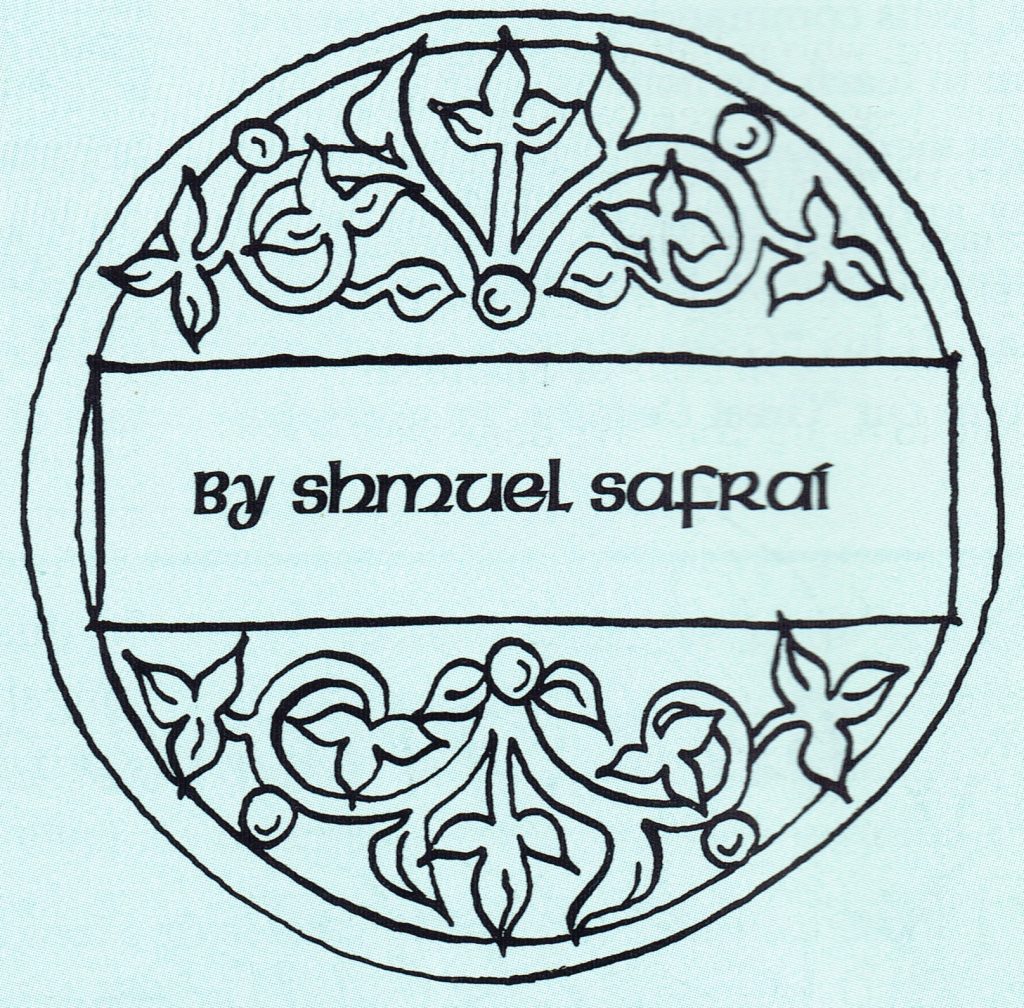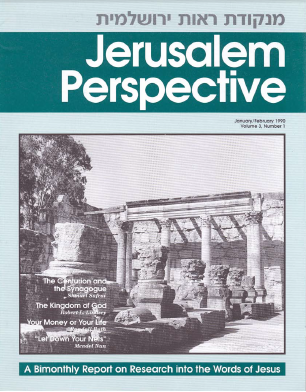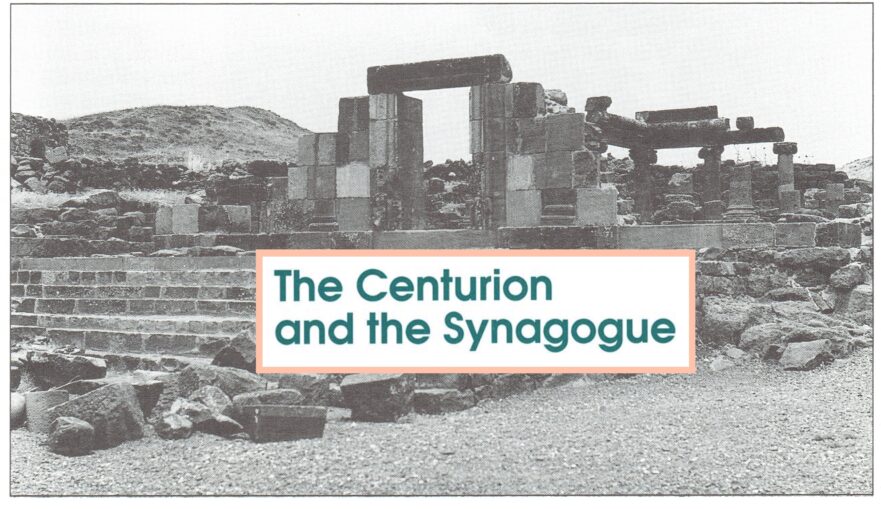How to cite this article: Shmuel Safrai, “The Centurion and the Synagogue,” Jerusalem Perspective 24 (1990): 3-5 [https://www.jerusalemperspective.com/2810/].
When Jesus had finished saying all these things to the people, he entered Capernaum. There, a centurion’s slave, whom his master valued highly, was sick and near death. The centurion heard of Jesus and sent some Jewish elders to ask him to come and heal his slave. When they came to Jesus they begged him earnestly: “He deserves this favor from you. He loves our people and he himself has built a synagogue for us.” So Jesus went with them. (Luke 7:1-6)

This story about Jesus and a centurion poses a historical and halachic question: How is it possible that a non-Jew, and an officer in the Roman army no less, would build a synagogue for Jews in the land of Israel?
Non-Jews
Isaiah 56:7 states: “My house shall be called a house of prayer for all peoples.” This prophecy was reflected in the everyday life of the Second Temple period, especially in the first century C.E. Gentiles came to the temple in Jerusalem to worship the Lord, and many also were found in the synagogues of the land of Israel and the Diaspora. Finding Gentiles in synagogues as described in the Book of Acts (Acts 13:16; 14:1; 17:4; 17:17; 18:4) is very much in keeping with the reality of the late Second Temple period and immediately afterwards, as numerous rabbinic sources also indicate.
Premium Members and Friends of JP must be signed in to view this content.
If you are not a Premium Member or Friend, please consider registering. Prices start at $5/month if paid annually, with other options for monthly and quarterly and more: Sign Up For Premium

- [1] For more on this Roman officer, and about the friendly relations some Romans had with the Jewish people, see Shmuel Safrai, "The Synagogue the Centurion Built." ↩


![Shmuel Safrai [1919-2003]](https://www.jerusalemperspective.com/wp-content/uploads/userphoto/20.jpg)
